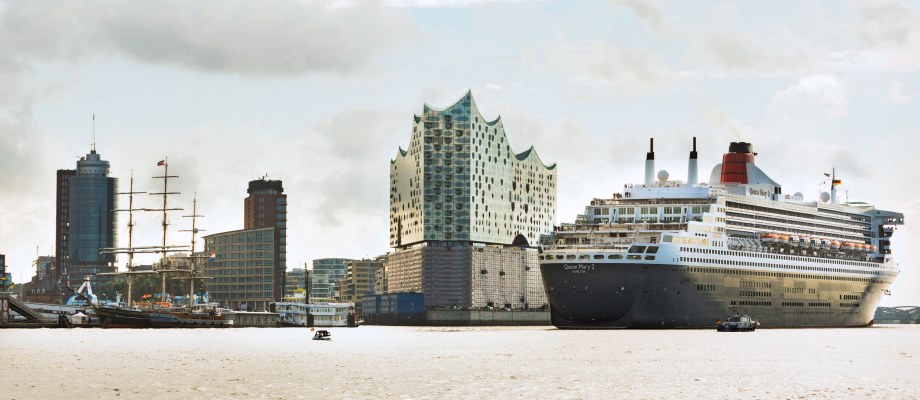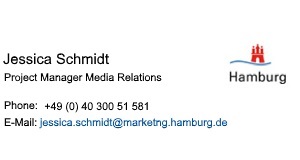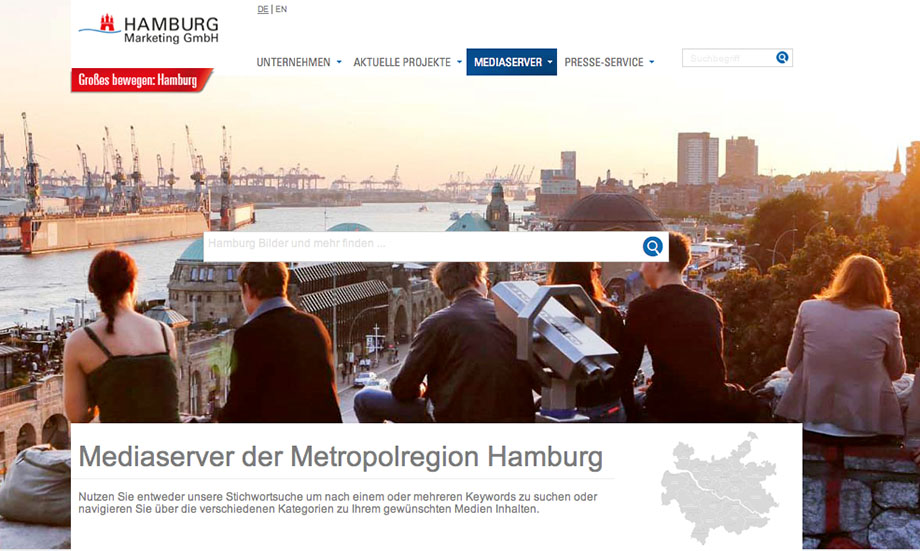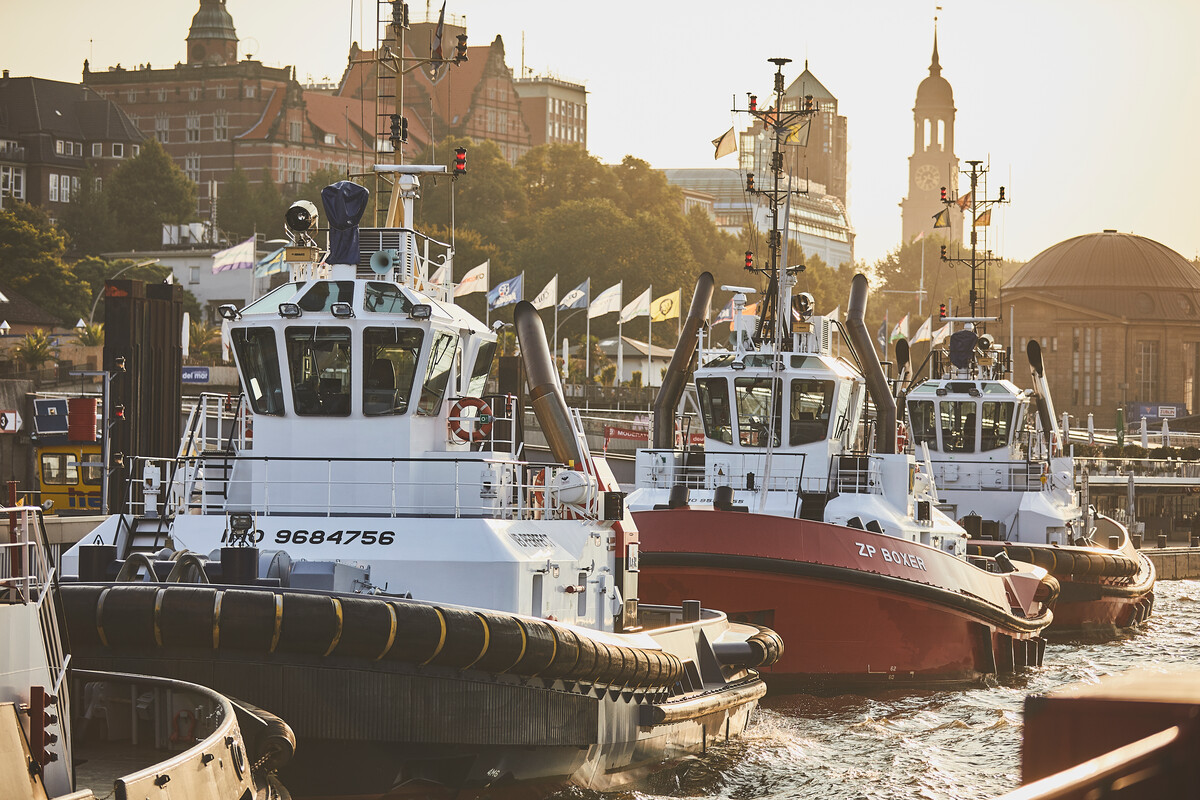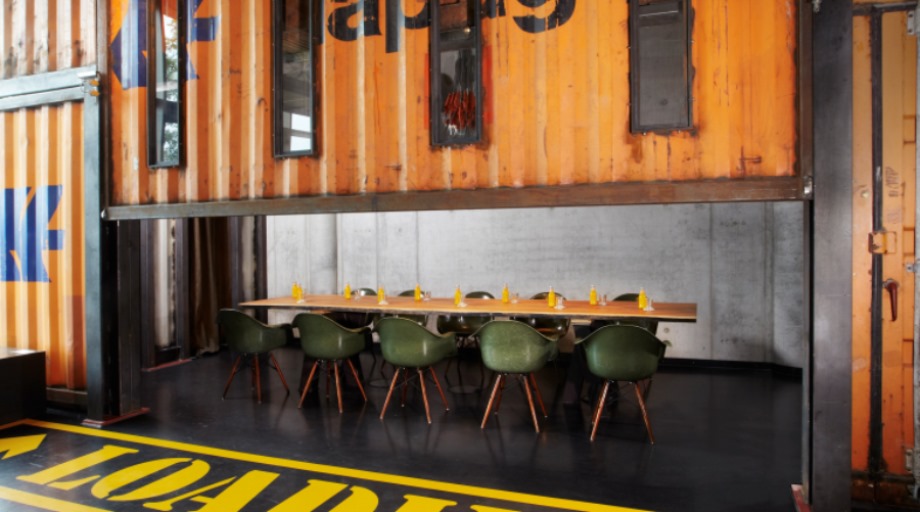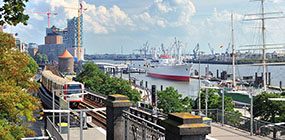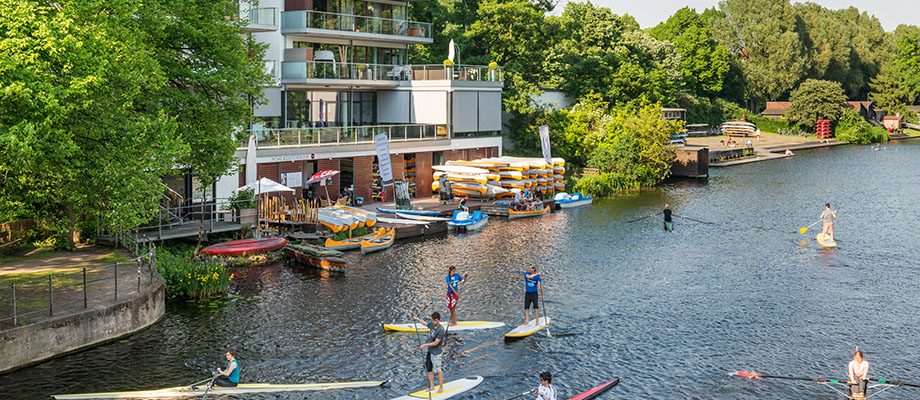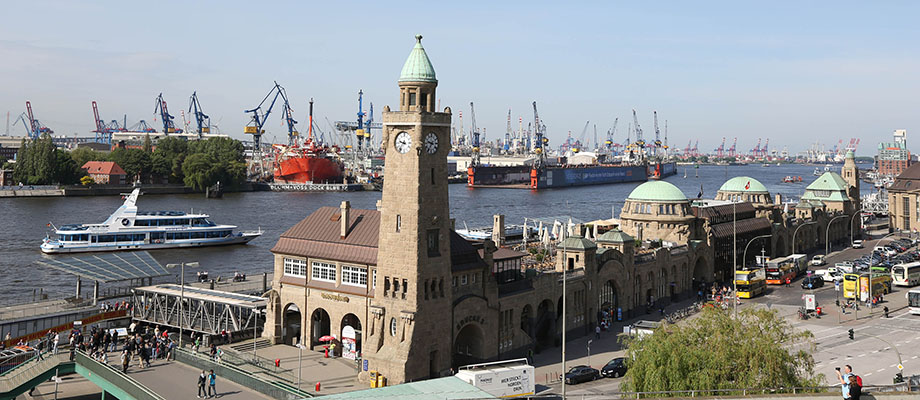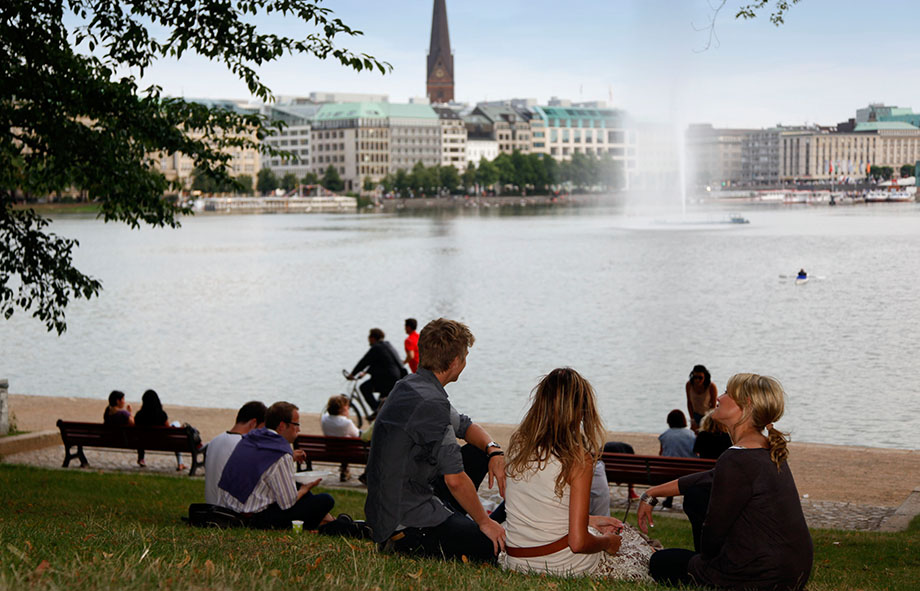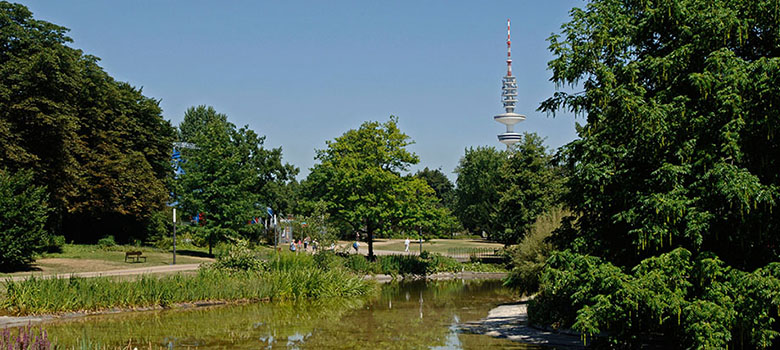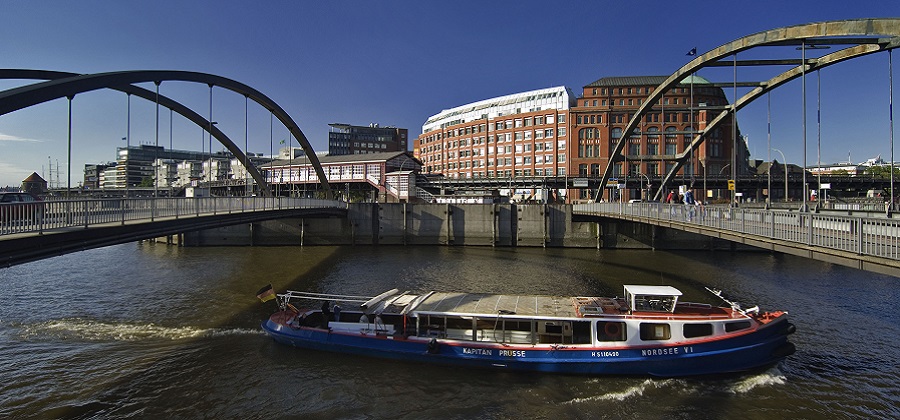At Home in the World
There is always a fresh breeze in Hamburg – and not just weather-wise. The vibrant port city of Hamburg attracts businesses, workers and tourists from all around the world. The city’s economy is flourishing amid a multi-cultural environment. Cosmopolitan, creative and colourful: that’s Hamburg in a nutshell.
West of the Alster Lake you will find magnificent villas towering above landscaped gardens. Long-established families live here, and distinguished physicians and solicitors have their practices here. This time-honoured quarter of town also hosts numerous diplomatic missions – more than 100 in total, which makes Hamburg the world’s second biggest consular location just after New York. Hamburg, and not Berlin? That’s right: more than 35,000 international corporations and companies are located in the Hanseatic city of Hamburg, making this thriving economic hub the German location for international diplomats.
Hamburg’s extensive international links can be traced back to the Middle Ages. In the early 11th century, when many German cities were nothing but fortified villages, Hamburg maintained flourishing trade relations with foreign countries. The incoming ships on the River Elbe brought not only goods from the northern and eastern allied cities of the Hanseatic League in England, Flanders, Norway and France, but also people with their own customs, traditions and religions. And they continue to arrive: 29 percent of Hamburg residents have a migrant background, which is a significantly higher rate than the national average (18 percent). Narrow-mindedness and fear of “the other” is something you won’t find in Hamburg. This has been true for centuries and still holds true today.
Global companies have their headquarters in Hamburg
Today the container port of Hamburg is the third largest in Europe. Mighty cruise vessels and container ships move through its waters, and massive cranes rise high above its docks. The humming sound of loading and unloading can be heard 24 hours a day. Hamburg is the most important trading hub in Northern Europe. For Asian countries in particular, Hamburg is the most important location in all of Europe. More than 500 companies from China alone have their headquarters here.
But it is not only the port that attracts people from all over the world: international companies such as Airbus and Unilever employ experts and skilled workers from across the globe; professors of international repute teach at the city’s universities; Facebook opened its first and only German branch in 2010, and even Google chose Hamburg as one of its three European locations. With nearly 4000 companies from the digital media industry, Hamburg is reputed to be the gaming capital of Germany, where professionals develop computer games that are played all over the world. And not just expats come to Hamburg: each year about six million tourists visit Hamburg and enjoy the special port atmosphere, the city’s outstanding musical productions and museums – and of course the Reeperbahn, the famous entertainment district with its countless clubs and live shows.
International flair in Hamburg’s alternative quarters
Hamburg’s international flair can best be experienced during a stroll through the city’s multicultural quarters such as St Georg and the Schanzenviertel. In the immediate vicinity of the port, between the St Pauli Landungsbrücken and the Baumwall underground station, you will find the Portuguese Quarter. Do you fancy fresh fish and seafood, and a delicious Galão to finish off your meal? All of this can be found on the Ditmar-Koel-Strasse. With its countless Portuguese cafés, restaurants and bars, this street exudes a truly Southern European atmosphere during the summer months. The Portuguese Quarter owes its name to the 1970s, when hundreds of Portuguese and Spanish port workers made this area their home. And even today, many of the locals can trace their roots back to the Iberian Peninsula. Also located on the Ditmar-Koel-Strasse: the four Nordic seamen’s churches (Swedish, Finnish, Danish and Norwegian). An insider’s tip: the magical Scandinavian Christmas markets during the Advent season are well worth visiting.
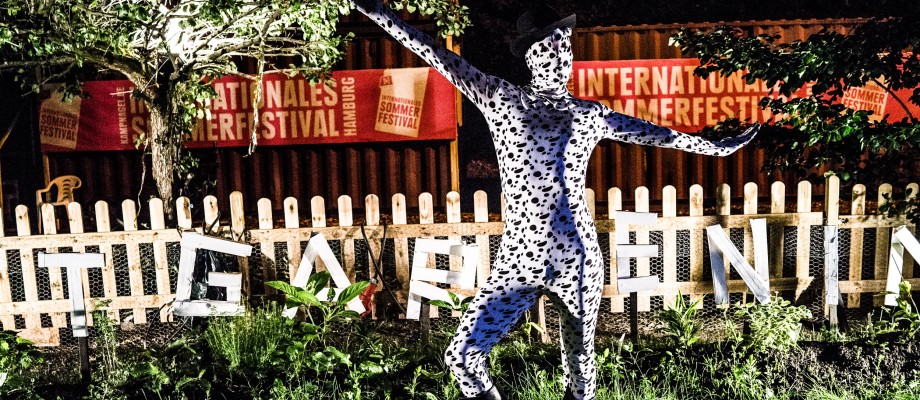
Art and culture from around the globe
Hamburg’s links with the Nordic countries can be felt throughout the city, and most of all in Altona – the district west of the city centre that was a Danish colony until 1864 and remained an independent town until the 1930s; it was only in 1937 that Altona was incorporated into the municipality of Hamburg. Today, many artists and creative people live in Altona, especially in the lively quarter of Ottensen. This is also where Fatih Akin grew up, the renowned international film director who has shaped Germany’s contemporary cinema scene. Every year in late June, Altona hosts the two-week festival “altonale” with art, music, design, theatre performances, a flea market and international culinary specialties. Each year, the “altonale” features a new partner city and showcases its dedicated art, culture and cuisine. The partner city of the 2015 “altonale” will be the Polish city of Danzig.
The “altonale” is just one out of many international art and culture festivals in Hamburg. Other festivals include the Japanese Cherry Blossom Festival in May, the biennial “China Time” series of events in November, the Hamburg Film Festival in October, and the international Elbjazz Festival in late May. And don’t forget the “British Flair” festival in May, which celebrates the British way of life in Hamburg. After all, Hamburg is Germany’s most anglophile city – is it perhaps because Hamburg and London are both located on major rivers? Or is it because the residents of both cities are considered to be reserved and yet cosmopolitan? Possibly. Certainly the British occupation after the Second World War has left its mark on the city, just like Hamburg’s “French period” between 1806 and 1814: thus, for instance, the Northern German farewell expression Tschüss is derived from the French word Adieu. While in Hamburg, you should make sure to also try the Franzbrötchen – a local specialty most likely inspired by French pastry. Its soft, sweet, cinnamon taste is simply delicious.
